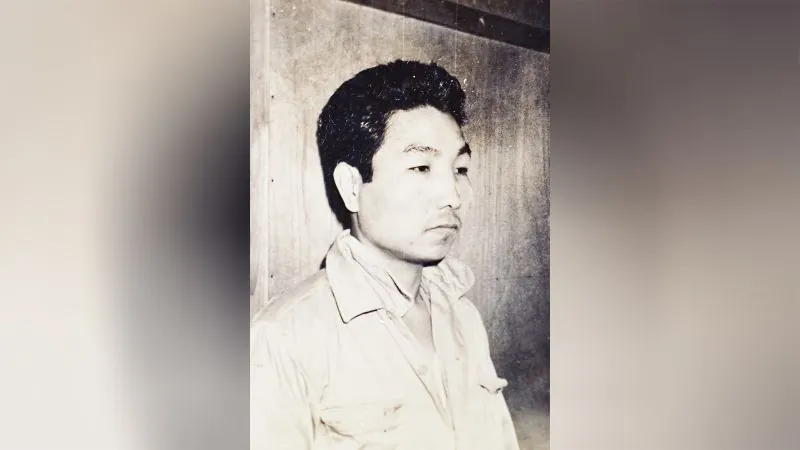
Iwao Hakamata: Japan's Longest-Serving Death Row Inmate Acquitted After 55 Years
2024-09-26
Overview of the Case
In a landmark ruling that has sent shockwaves across the globe, the Shizuoka District Court in Japan has acquitted Iwao Hakamata, marking the end of a staggering 55-year-long ordeal for the country's longest-serving death row inmate. Hakamata, now 88 years old, was wrongfully convicted in 1968 for the brutal murder of a family in Shizuoka, a conviction that relied heavily on dubious evidence and a coerced confession.
Judicial Findings
The pivotal moment came when Judge Kunii Tsuneishi determined that the blood-stained trousers central to Hakamata's conviction had been manipulated and placed in a miso tank long after the alleged crime. The judge stated unequivocally, "The court cannot accept the fact that the blood stain would remain reddish if it had been soaked in miso for more than a year. Mr. Hakamata cannot be considered the criminal." This ruling not only exonerated a man who had spent most of his life behind bars, but it also underscored grave concerns about the integrity of Japan's criminal justice system.
Background of Iwao Hakamata
Hakamata's journey began when he was a promising professional boxer who transitioned to working at a soybean processing plant after his retirement. His life took a dark turn in June 1966 when his boss and their family were found murdered. With a troubling past and under immense pressure, Hakamata became the police's prime suspect. Following relentless interrogation, he initially confessed to the crime, only to later recant, claiming police had used brutal methods to extract his admission.
Evidence and Legal Proceedings
Despite his protests and the eventual recognition of procedural injustices, Hakamata was sentenced to death based on scant evidence and a coerced confession. Over the years, his case garnered attention both nationally and internationally, raising pressing questions about Japan's reliance on confessions in securing convictions. Traditionally, Japan’s justice system has faced heavy scrutiny for its high conviction rates—approximately 99%—a figure achieved predominantly through a practice heavily reliant on confessions, often obtained under duress.
Emerging Evidence and Retrial
New evidence emerged when DNA testing on the blood from the trousers revealed no match to either Hakamata or the victims. This finding led to the rare decision for a retrial, although the Tokyo High Court initially dismissed the request until it was reinstated in 2023 under an order from Japan’s Supreme Court. Hakamata's mental state has declined significantly during his incarceration, leading to a deeply altered perception of reality. His sister, Hideko Hakamata, has dedicated much of her life to advocating for her brother's innocence and expressed profound relief and joy at the verdict declaring him not guilty.
Public Reaction and Implications
While the ruling has sparked widespread celebration among supporters of Hakamata, many believe it highlights deeper issues within Japan's legal framework and the death penalty itself. Activists like Chiara Sangiorgio of Amnesty International argue that Hakamata's case exemplifies systemic flaws—an over-reliance on confessions, solitary confinement, and a lack of transparency surrounding executions.
The Death Penalty in Japan
Moreover, Japan stands as one of the few industrialized nations still holding onto capital punishment, a contentious practice that has drawn both domestic and international condemnation. While no executions were carried out in 2023, the dialogue surrounding the death penalty remains heated.
Hakamata's New Beginning
Now released, Hakamata is facing the challenges of reintegration into society after decades of isolation. Despite his deteriorating mental health, he has recently found solace in adopting two cats, indicating a glimmer of change in his ability to embrace life outside prison walls.
Conclusion
As Hakamata's unprecedented case concludes, it raises a crucial dialogue not just about one man's freedom, but the future of justice in Japan. The public will be watching closely, hoping this moment leads to meaningful reforms in a system long criticized for its treatment of accused individuals.



 Brasil (PT)
Brasil (PT)
 Canada (EN)
Canada (EN)
 Chile (ES)
Chile (ES)
 España (ES)
España (ES)
 France (FR)
France (FR)
 Hong Kong (EN)
Hong Kong (EN)
 Italia (IT)
Italia (IT)
 日本 (JA)
日本 (JA)
 Magyarország (HU)
Magyarország (HU)
 Norge (NO)
Norge (NO)
 Polska (PL)
Polska (PL)
 Schweiz (DE)
Schweiz (DE)
 Singapore (EN)
Singapore (EN)
 Sverige (SV)
Sverige (SV)
 Suomi (FI)
Suomi (FI)
 Türkiye (TR)
Türkiye (TR)